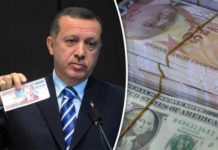Taiwan ministry expresses ‘deep concern’ about Qualcomm’s antitrust fine
by Jess Macy Yu
TAIPEI (Reuters) – Taiwan’s economics ministry said it is “deeply concerned” about the antitrust agency imposing a $775 million fine on Qualcomm Inc (QCOM.O), in a rare public display of disagreement between authorities.
Taiwan’s Fair Trade Commission (FTC) fined Qualcomm last week, saying the U.S. chipmaker had abused its monopolistic position by opting against licensing some modem-related technologies to other industry players.
Qualcomm said it disagreed and would take the matter to court once the agency releases a final report in coming weeks.
The Ministry of Economic Affairs, which oversees industrial policy, said it respected the agency’s position but was concerned about any impact on foreign investment.
“With regards to the investigation and judgment process… our ministry is deeply concerned,” the ministry said in a statement posted on its website late on Tuesday.
“Considering economic stability and prosperity, as well as that the economics ministry is the government authority overseeing industry, the ministry would like to see better coordination between industrial development and fair trading.”
The ministry said the agency did not appear to take into account Qualcomm’s contribution to the overall local technology industry or impact on future business opportunities, describing the U.S. firm as an “indispensable partner”.
The FTC did not have an immediate comment when contacted by Reuters.
Taiwanese chipmaker MediaTek Inc (2454.TW) supported the FTC’s action in a statement on Oct. 12, reiterating views of some industry players that it would lead to a fairer business environment for technological innovation.
The action is the latest challenge to Qualcomm’s business model, which involves selling chips and licensing patents related to installation and use.
In December, South Korean regulators fined Qualcomm $854 million for violating competition law. That followed a $975 million fine from Chinese regulators in 2015.










